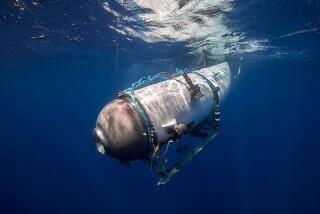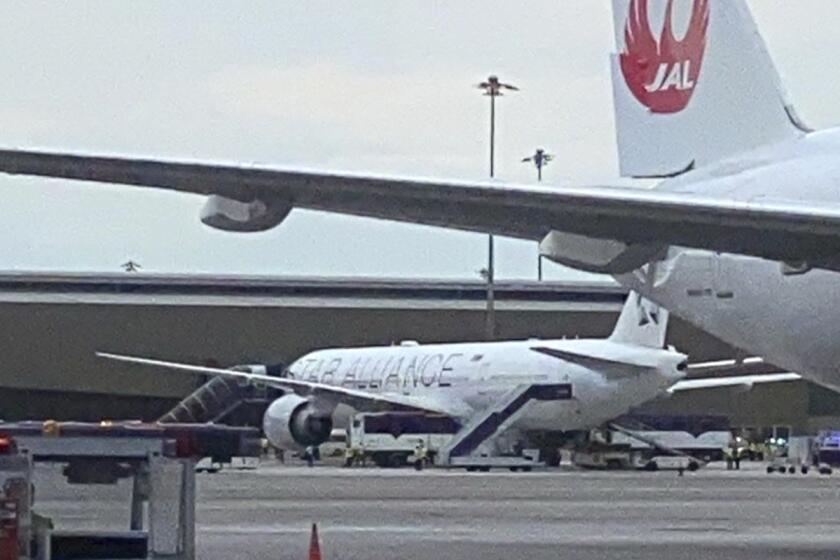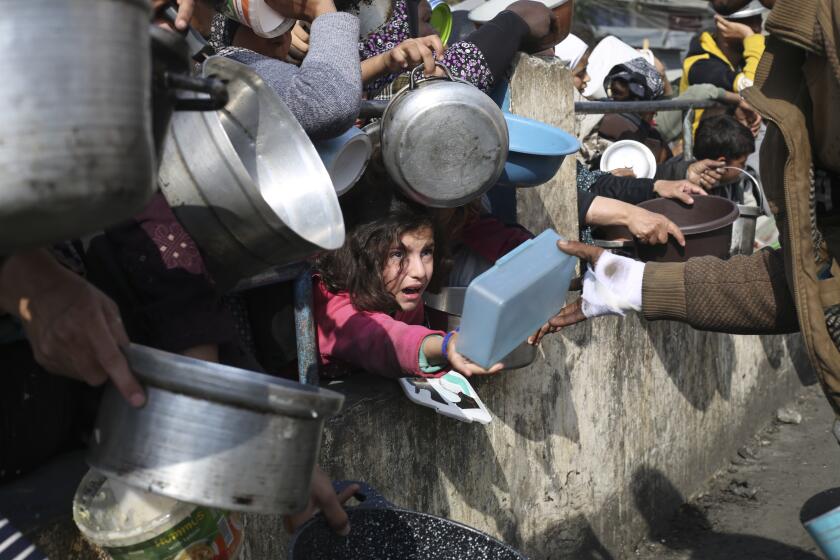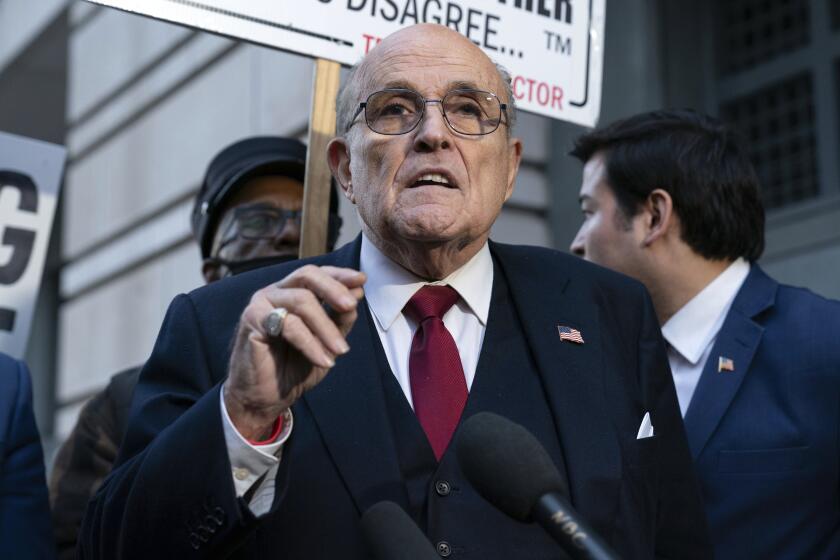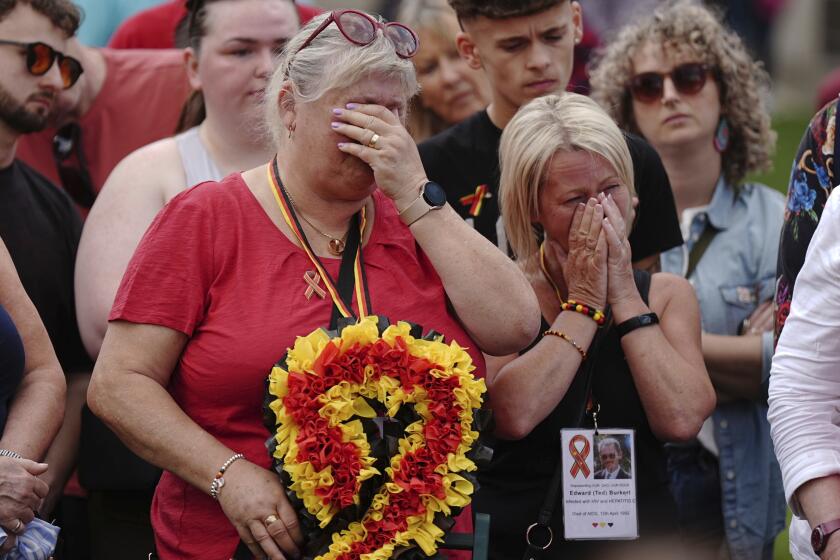Putin Taps New Defense Chief in Push to Reform Military
President Vladimir V. Putin appointed a trusted ally and fellow KGB veteran as defense minister Wednesday, part of a sweeping reshuffle of top security posts that signals the Russian leader’s determination to reform his nation’s military.
For the first time, Russia’s fractious generals will be subordinated to an outsider--and will answer to a woman for their spending.
Putin shifted Sergei Ivanov, the powerful Security Council chief and head of a commission on military reform, to the post of defense minister. And in a move designed to stem corruption and theft in the military, he named former Deputy Finance Minister Lyubov Kudelina as Ivanov’s deputy minister.
Putin has faced criticism lately from those who say he has done much to consolidate power but little of substance, despite his promises to push changes in the military, the justice system and pension programs.
The appointment of Ivanov, one of Putin’s closest advisors, will tighten the president’s control over the military and force generals to accept reform, which has been delayed by squabbling and stalling since Putin announced it was a top priority last summer.
Putin also moved Interior Minister Vladimir B. Rushailo to the post of Security Council chief, amid signs that the council--influential under Ivanov--will have its wings clipped.
The president said he expects that the Security Council will focus more tightly on policy issues related to conflicts in the separatist republic of Chechnya and elsewhere in the Caucasus. The 18-month-old Chechen war continues to claim servicemen, and authorities blamed Chechen rebels for three car bombings Saturday in southern Russia that killed 23 people.
Political analyst Liliya F. Shevtsova of the Carnegie Moscow Center, a think tank, said the reshuffle was designed to make the government even more loyal to Putin.
“It is also obvious that the current changes are in response to critics’ comments that the president recently slowed down and has become passive,” she added. “Now we are supposed to see that Putin really is active, but whether these actions will bring results remains to be seen.”
The most surprising move Wednesday was Putin’s decision to give another loyal ally, Boris Gryzlov, head of the pro-Kremlin Unity faction in the lower house of parliament, the tough job of interior minister. The ministry’s paramilitary police serve in a military capacity and are on duty in Chechnya.
Boris Y. Nemtsov, leader of the pro-market Union of Right Forces party in the lower house, warned that while it is no easy task running a faction in parliament, Gryzlov will face a much more difficult task in leading his ministry’s Chechen operations.
“Frankly, I express my sympathy to Gryzlov and I wish him success in this job, which will be extremely difficult,” Nemtsov said. “But there is a problem here. The fact is that the military is very corporate and they don’t easily accept aliens.”
Ousted Defense Minister Igor D. Sergeyev becomes a presidential aide in charge of strategic security. Putin reportedly was unhappy with Sergeyev after the defense chief clashed publicly last year with ministry Chief of Staff Col. Gen. Anatoly V. Kvashnin, as both men sought more resources for rival areas of the military.
Ivanov, 48, who worked in foreign intelligence for two decades, visited Washington this month. He was the first top Russian official to have contact with the Bush administration.
Political analyst Andrei A. Piontkovsky, director of the Moscow-based Independent Institute for Strategic Studies, said Ivanov had built an image as Russia’s second-most powerful figure and that his generally hard-line foreign policy comments have damaged relations with the United States. Ivanov has criticized President Bush’s planned national missile defense system and called on the West to forgive Russia’s debts.
Putin said one aim of the reshuffle was to demilitarize Russian life and bring more civilians into top military jobs, which he described as a logical result of the modernization of the military.
In November, the president signed a decree dismissing Ivanov from his rank as lieutenant general in the foreign intelligence service, a move that some now believe set the stage for his appointment as a civilian defense minister.
Piontkovsky challenged Putin’s assertion that Ivanov’s appointment was a step on the road to a civic society.
“When a KGB general replaces a defense minister, it can be called a step toward almost anything but a civic society,” he said. The foreign intelligence service was one of the successor agencies to the KGB.
The real imperative for military reform is Russia’s vulnerable financial position, as there are signs that economic growth is slowing and may stall. The bulk of the defense budget goes to salaries and benefits for servicemen, with little left to improve the military’s professionalism.
“Less than 30% [of the armed forces’ budget] goes to maintenance, combat training and designing of new kinds of military hardware, which means we’re on a road to nowhere. One of my main tasks will be to improve combat readiness and combat training of the troops,” Ivanov declared in a television interview after his appointment.
Alexander I. Zhilin, a military analyst at the Moskovskiye Novosti weekly newspaper, said Ivanov’s appointment is a sign that Putin is serious about military reform.
“Sergei Ivanov is a conceptual thinker, unlike the defense ministry generals bogged down in corruption and ugly squabbles over sources of enrichment,” he said. “Ivanov has nothing to do with corruption which ties all the top brass together.”
Nemtsov of the Union of Right Forces said Putin’s move to break through the bureaucratic resistance is important but that the president had failed to push out old members of the team.
“If he really wants to move the country ahead, he needs absolutely new people; he needs a new generation in power,” Nemtsov said.
More to Read
Start your day right
Sign up for Essential California for news, features and recommendations from the L.A. Times and beyond in your inbox six days a week.
You may occasionally receive promotional content from the Los Angeles Times.


